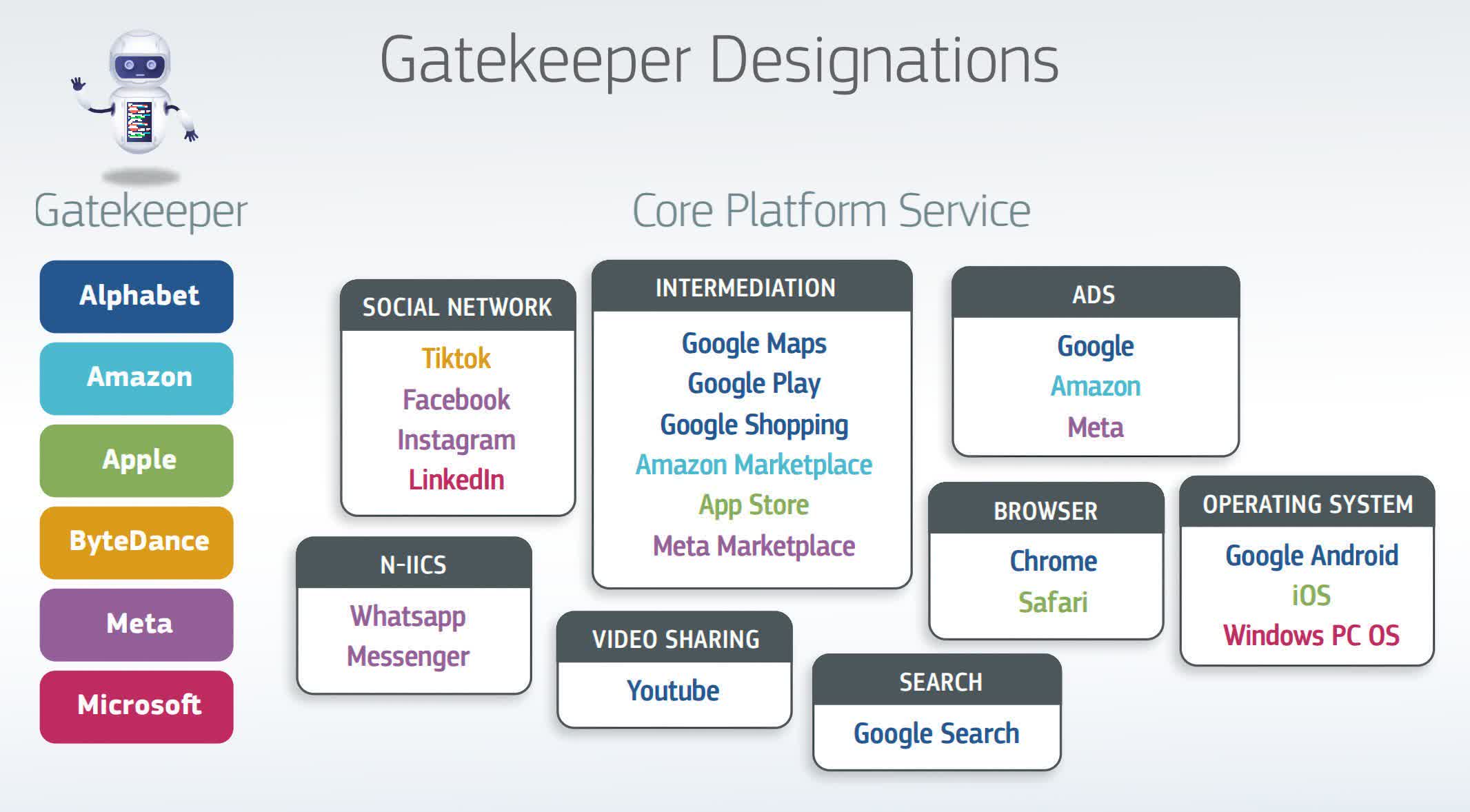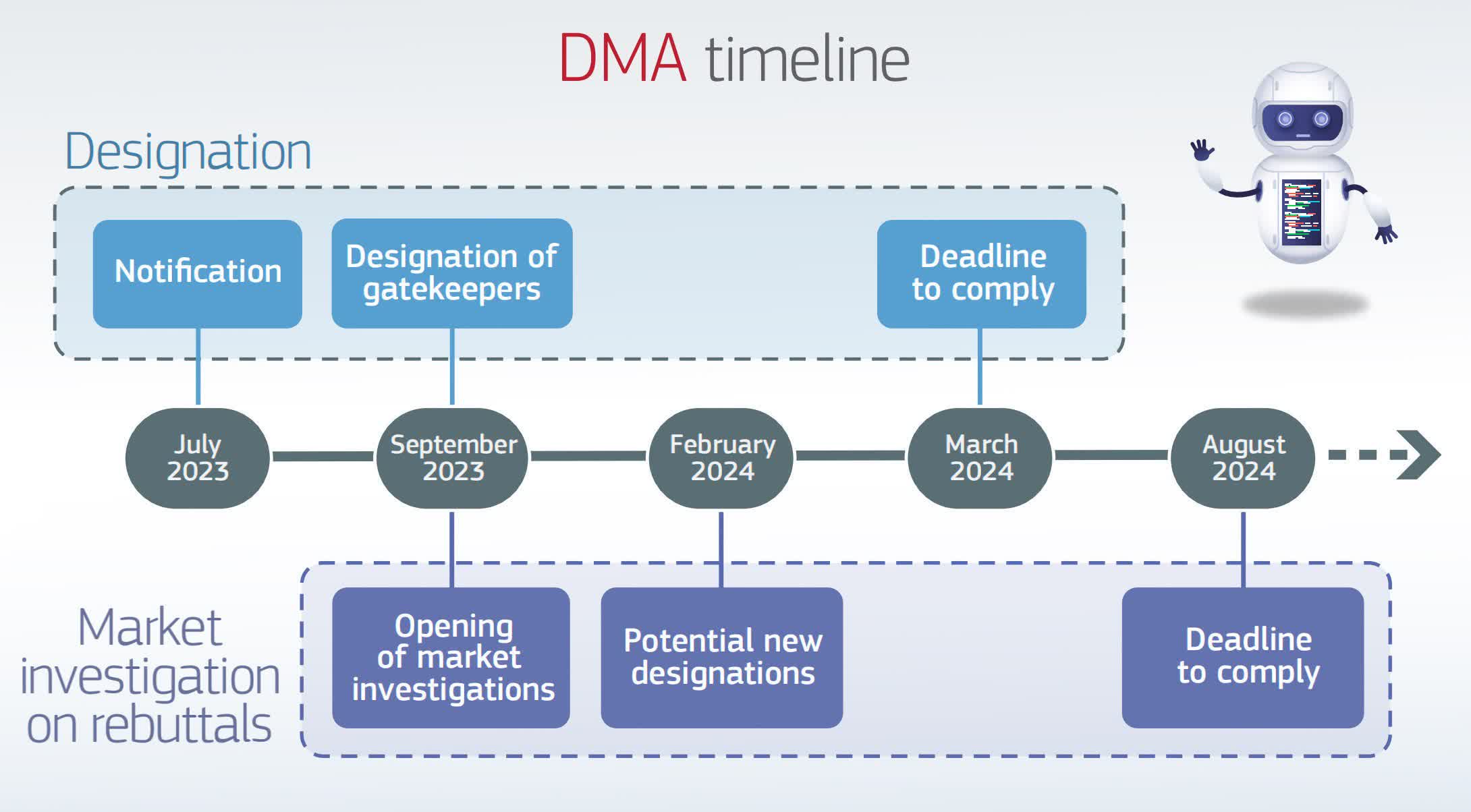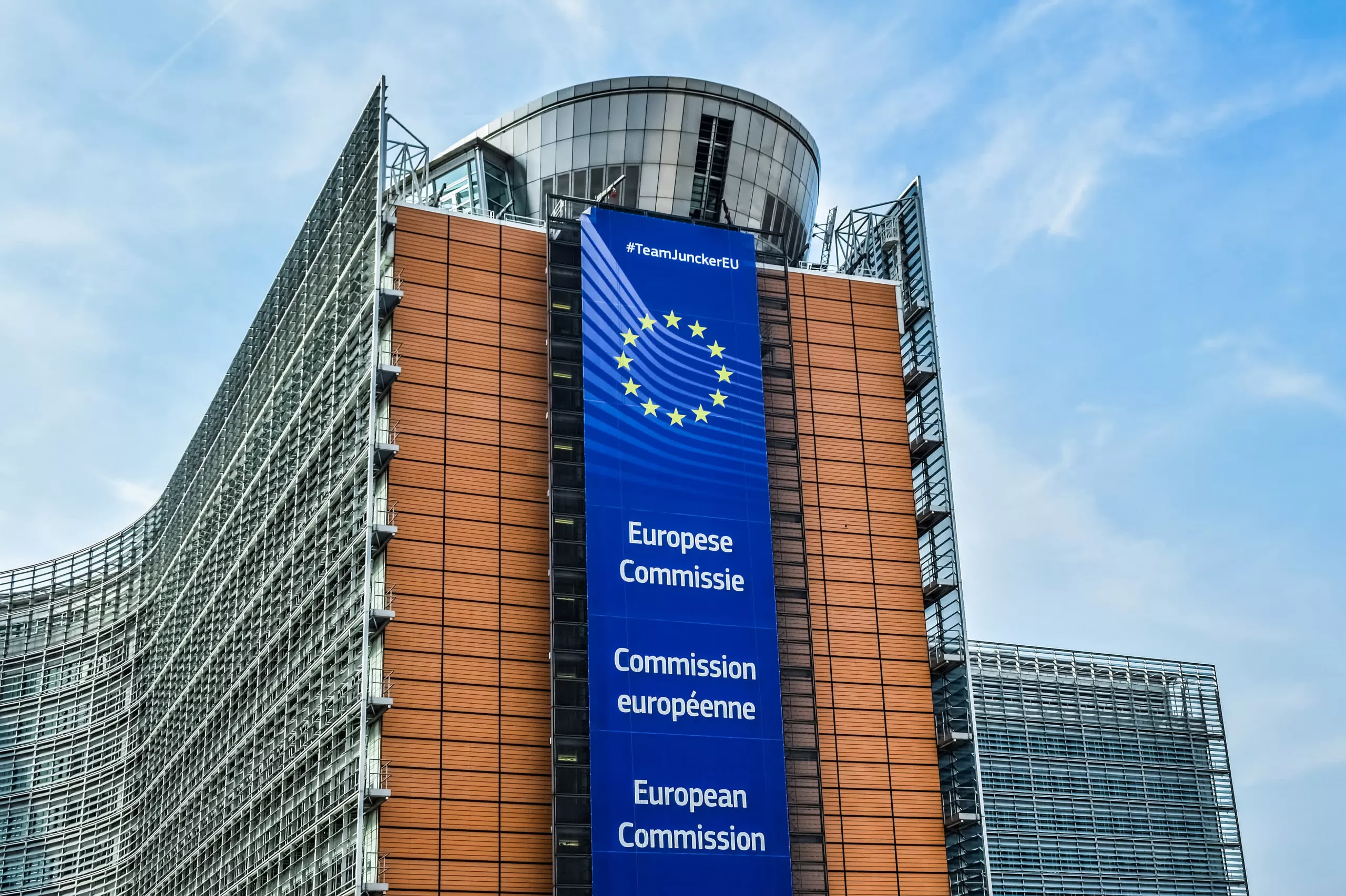In context: When the European Union passed the Digital Markets Act in 2022, it avoided naming names because it wanted to be clear that the legislation applied to any company that fell into its definition of a "gatekeeper." However, everyone knew what companies the law was primarily meant to target – Google and Apple.
Google and Apple have probably dodged more antitrust bullets than anyone would care to count. So, they were the obvious favorites for Gatekeepers of the Year. However, on Wednesday, the European Commission outlined and named four other Big Tech companies it considers the primary gatekeepers in today's digital marketplace – Amazon, ByteDance, Meta, and Microsoft.
These companies operate 22 "core platform services" that the EC believes make up the modern gatekeeper ecosystems. Some deserve to be on the list, while others are questionable. For instance, ByteDance only operates one of the 22 services (TikTok), while the rest have two or more.
Meanwhile, it seems that gaming console makers are entirely out of the running despite having walled gardens that are arguably the most well-protected, next to iOS, where gatekeeping is concerned. Without diving into the finer points of a huge piece of legislation, it's unclear why the EC does not consider Xbox and PlayStation core platform services, with Sony deemed an additional gatekeeper on par with ByteDance.

Samsung also received notification that the EC was considering giving it gatekeeper status during the 45-day review process. However, it appears the Korean tech giant skated by for now.
The DMA defines a gatekeeper as any tech company with more than 45 million monthly active users and a market cap of $82 billion US. Sony and Samsung fall into this definition, but the EC excluded Samsung after it argued that its internet browser did not have enough market share to have an impact as a gatekeeping core service. The EC agreed and removed the browser from the core services list. It does not appear that the Commission ever considered Nintendo, Sony, Switch Online, or the PlayStation Network for gatekeeper status, even though both operate walled-off stores. However, Nintendo misses the market cap by about $30 billion, so would have been disqualified anyway.
Most companies quietly accepted their designations, but Apple and Microsoft objected to one or more of their core services being considered gateways. Microsoft claims Bing, Edge, and Microsoft Advertising do not deserve the designation. Likewise, Apple argues that Messages (formerly iMessage) is not a gateway platform. The Commission is investigating further to decide whether these arguments are valid. However, at the same time, it is considering adding iPadOS to the list of Apple's gatekeeper platforms.

In a win for the Big Tech side, Google, Microsoft, and Samsung objected to Gmail, Outlook.com, and Samsung Internet Browser receiving gatekeeper status and, on further review, got the EC to change its mind about them. As mentioned, Samsung got a pass since its only core service was its browser, which got disqualified.
"The Commission has concluded that, although Gmail, Outlook.com, and Samsung Internet Browser meet the thresholds under the DMA to qualify as a gatekeeper, Alphabet, Microsoft, and Samsung provided sufficiently justified arguments showing that these services do not qualify as gateways for the respective core platform services. Therefore, the Commission decided not to designate Gmail, Outlook.com, and Samsung Internet Browser as core platform services. It follows that Samsung is not designated as [a] gatekeeper with respect to any core platform service."
The six companies now have one year to fall in line and comply with DMA rules. The EC's timeline (above) has regulators conducting investigations from now until February 2024. These probes will look into rebuttals from designated companies and consider whether it should add other firms to the gatekeeper list. The EC has until March 2024 to name any other gatekeepers, and businesses have until August 2024 to comply with the rules.
